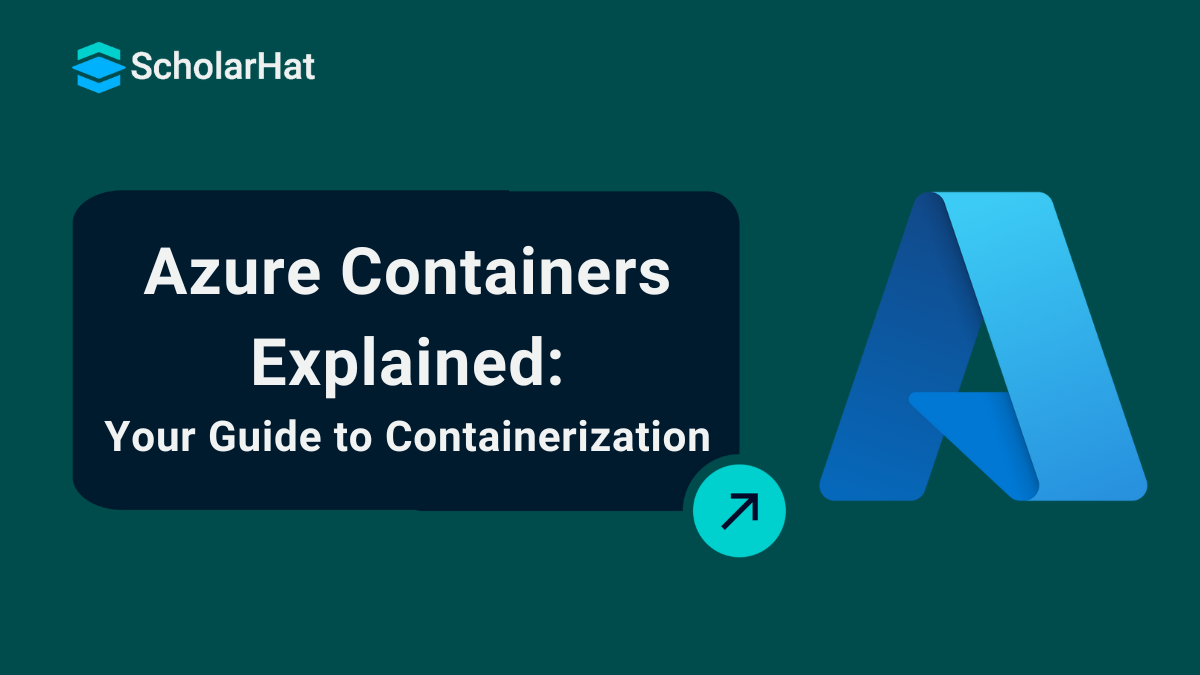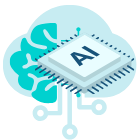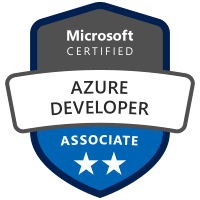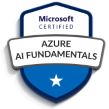20
FebUnderstanding Containers in Azure
Containers in Azure
Containers have become an advanced technology in the quickly developing field of cloud computing. It surely changes the way programs are created, implemented, and maintained. By using the container, software developers can create, test, and launch applications more quickly. Azure Containers provide a uniform, lightweight, and efficient approach to application development. Microsoft's cloud computing platform Azure offers strong support for containerized apps, facilitating developers' ability to fully utilize container technology.
In this Azure Tutorial, We will learn more about Containers in Azure including What is Containers, What are the key features of containers, and an Overview of Azure Container Services. Boost your earning potential by 22% with in-demand Azure skills. Join our Free Azure Fundamental Training now!
What are Containers?
- Containers are nothing but a type of virtualization thatcombinesan application and all of its dependencies into a single, lightweight unit.
- It shares the kernel of the host system but keeps the application processes separate from the rest of the system, in contrast to typical virtual machines (VMs).
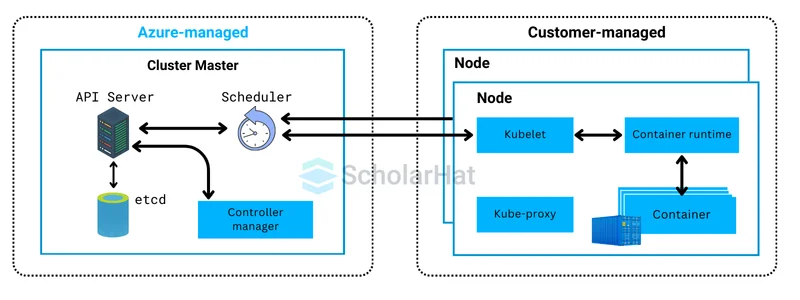
Key Concepts of Containers
1. Container Image
- A container image is a snapshot that contains the runtime, libraries, dependencies, and application code.
2. Container Runtime
- Container Runtime is the software responsible for running containers, such as Docker.
3. Container Orchestration
- It refers to the use of tools like Docker Swarm or Kubernetes to control the deployment, scalability, and functionality of containers.
Why containers are important to you?
- The issue of a program not functioning properly when transferred to a different environment is as ancient as software development.
- These kinds of issues usually result from configuration discrepancies that underlie library requirements and other dependencies.
- By offering a lightweight, immutable framework for application packaging and deployment, containers solve this issue.
- A container image is an assembly of an application or service, its dependencies, and its configuration.
- The containerized application can be deployed to the host operating system as a container image instance and tested as a standalone application.
- Developers and IT specialists can thus deploy apps across environments with minimal to no alteration thanks to containers.
Comparisons Between Virtual Machines and Containers
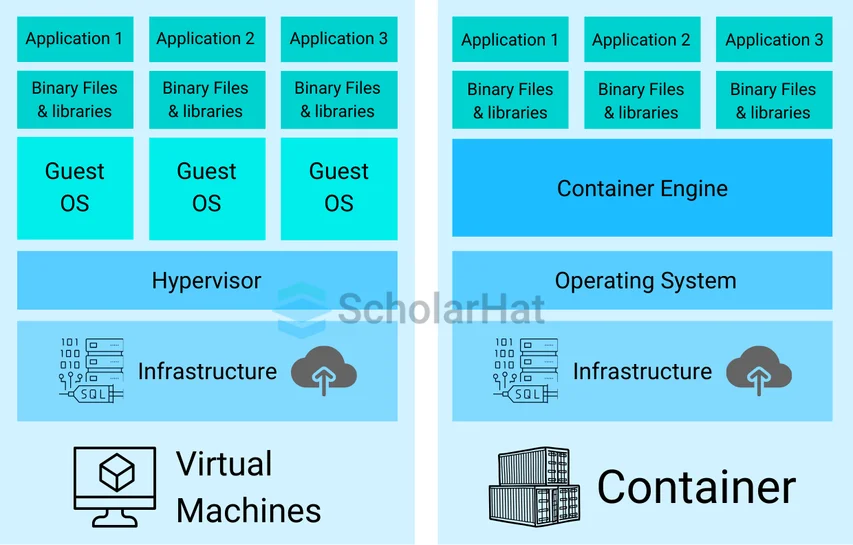
1. Resource Efficiency
- Containers have great resource efficiency because they share the host operating system kernel, are lighter than virtual machines (VMs), and make better use of available resources.
2. Isolation
- Containers achieve isolation at the process level, which makes them faster and more efficient, but virtual machines (VMs) offer robust separation with different operating systems.
3. Startup Time
Virtual machines (VMs) can take minutes to boot up, whereas containers can start in seconds, which makes them perfect for quick scaling and deployment.
Advantages of Using Container
Containers are the ideal option for developing and deploying modern applications because of their many benefits:
1. Portability
- By encapsulating all dependencies, containers guarantee that programs operate uniformly in a variety of settings, including production, test servers, and developer laptops.
2. Scalability
- Applications may be readily scaled up or down based on demand thanks to containers' easy replication and management features.
- This is especially helpful for apps that are cloud-native and need dynamic scaling.
3. Efficiency
- Because containers are lighter and require fewer resources than virtual machines (VMs), hardware may be used more effectively.
- Improved performance and cost savings are the results of this efficiency.
4. continuous integration and continuous deployment (CI/CD)
- Because they make continuous integration and continuous deployment (CI/CD) methods possible, containers also improve development workflows.
| Read More: Building CI/CD Pipeline with the Azure DevOps |
Azure Kubernetes Service (AKS)
A managed Kubernetes solution, Azure Kubernetes Service (AKS) makes containerized application deployment, scaling, and maintenance easier.

The deployment, scaling, and maintenance of containerized applications can be automated with Kubernetes, an open-source container orchestration platform that offers strong features like:
1. Automated Deployments
- By automating the deployment of containerized apps, AKS guarantees a low amount of downtime throughout its rollout.
2. Scaling and Load Balancing
- To guarantee high availability and performance, AKS automatically scales applications according to demand and divides traffic among containers.
3. Integrated Logging and Monitoring
- AKS offers thorough logging, monitoring, and diagnostics for containerized apps by integrating with Azure Monitor and Azure Log Analytics.
4. Security and Compliance
- By integrating AKS with Azure Security Center, network policies, and managed identity integration, among other built-in security capabilities, you can be sure that
In addition, AKS facilitates easy interaction with other Azure services, including Azure Active Directory for access control and authentication, Azure Container Registry for image storage, and Azure DevOps for continuous integration/continuous delivery pipelines.
Conclusion
Azure Containers makes containerized application deployment and administration easier, freeing developers to concentrate on creating and growing their apps rather than worrying about the underlying infrastructure. The advantages of container technology may be fully realized by developers using AKS, improving workflow scalability, productivity, and efficiency.
Earn up to ₹14 LPA as an Azure-certified developer. Enroll in our Microsoft Azure Developer Certification training now.
FAQs
Take our Azure skill challenge to evaluate yourself!

In less than 5 minutes, with our skill challenge, you can identify your knowledge gaps and strengths in a given skill.

